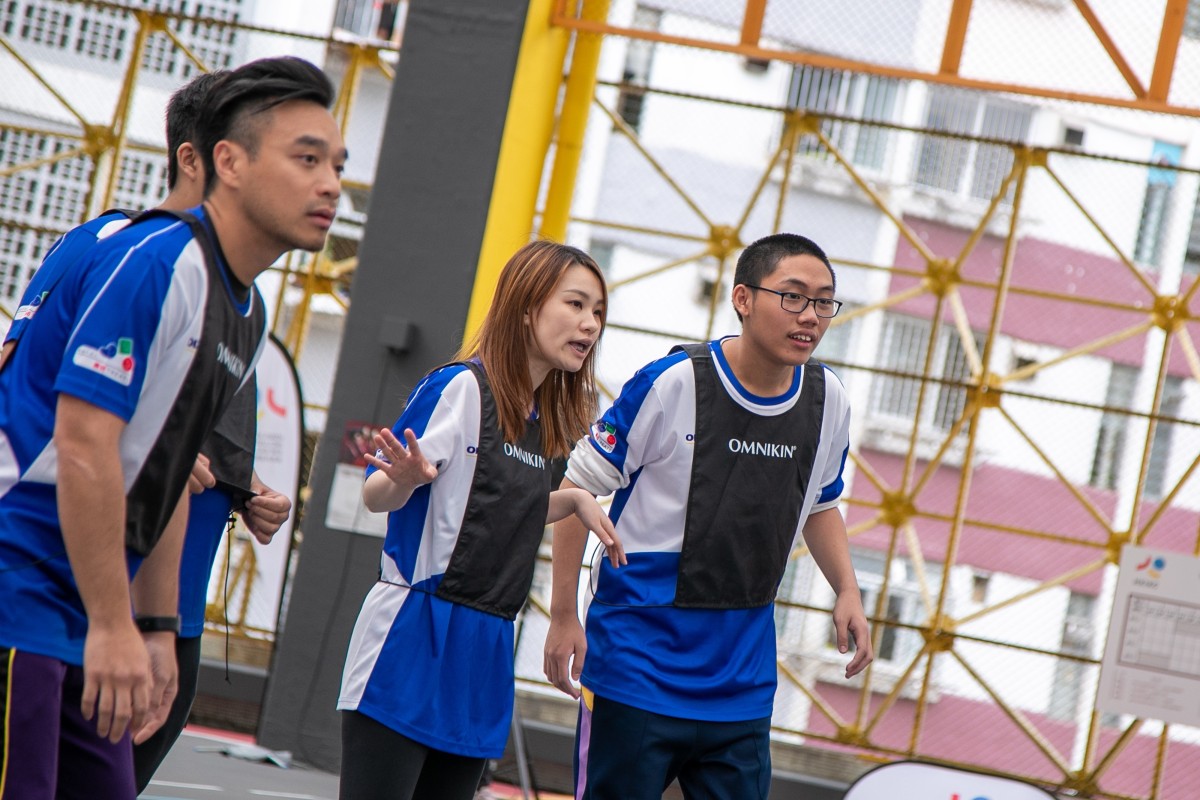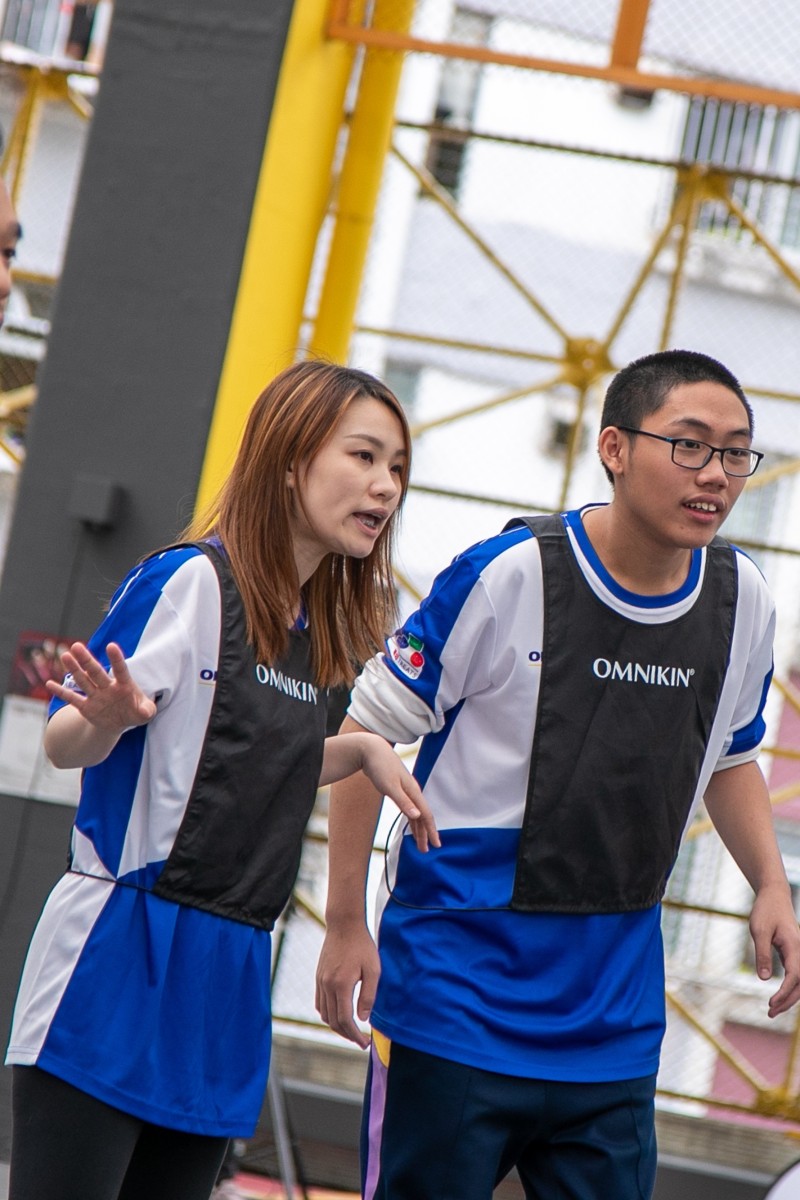 Mario Lam (first from right) said communication was key to win a kin-ball match.
Mario Lam (first from right) said communication was key to win a kin-ball match.Omnikin-black-Omnikin-black!” Team Grey yelled, before giving the ball a powerful whack.
As the huge yet surprisingly lightweight ball flew through the air to the other end of the court, Team Black’s Mario Lam Man-lung and Zita Kwok Mei-ling ran towards it as fast as they could, intent on reaching it before it touched the ground.
The team managed to catch the ball just in time. Mario knelt down to help his teammates hold the ball in place, and Kwok was ready to make a strike. This time, she shouted “Omni-Omnikin-blue!”.
The game they were playing was Kin-Ball, a niche sport that originated in Quebec, Canada, in the late 1980s, but didn’t make its way to Hong Kong until a few years ago. Following the establishment of the Hong Kong Kin-Ball Association in 2015, the city now has a national team that competes globally. Local championships are also held throughout the year.
The match we watched was the first Inclusive Kin-Ball Cup held on January 19 by Treats, a local non-profit group that promotes social inclusion of young people with special needs through sports.
Twenty students from three local special needs schools – Mary Rose School, Saviour Lutheran School and Hong Chi Winifred Mary Cheung Morninghope School – were joined by volunteers from four local companies, who were Kin-Ball rookies. Four teams of four were formed for the tournament, with the remaining participants sitting as reserves.
Before the day of the tournament, the four teams attended training sessions to learn the basics and get to know their fellow team members.
“I’d never played Kin-Ball before, and this was the first time I’d taken part in a competition with people outside of my school,” said Mary Rose School student Mario, 15. “It was very new and interesting.”
Mario’s volunteer partner, Kwok, said she was surprised by the lightness of the enormous ball, which has a diameter of 120cm, but weighs only around 1 kilogram.
Hong Kong education needs to be more inclusive for students enrolled in special needs schools
“Because the ball is quite lightweight, sometimes it’s hard to control where it goes,” she said.
Treats programme coordinator Lee Ka-shun explained that Kin-Ball is an ideal sport for teenagers with special needs, because the skills required are easier to pick up than those needed for traditional sports.
Rather than focusing on technique, the sport puts a lot of emphasis on teamwork and communication, as players have to devise a plan to catch the ball, on the spot. This encourages teens with learning difficulties to practise their social and interpersonal skills.
“These students are really active and energetic, which is perfect for Kin-Ball,” said Lee. “The sport has helped boost their confidence, because they were able to grasp the gist of it quite easily.”
Although Mario and Kwok’s team came last, both told Young Post that one game was enough to get them hooked on the sport, and that they’d love to keep playing it.
Mario said the trickiest part of the game was yelling the correct team name during an attack. The fervent cheers of the crowd also sometimes made it difficult for him to communicate with his teammates.
Gold for Hong Kong at Winter Youth Olympics ice hockey mix-up match
“It was quite challenging, but when we worked together and managed to overtake the other teams, it made me really happy and proud,” he said.
Meanwhile, Kwok noted that joining the Inclusive Kin-Ball Cup had changed her perception of students with special needs, and had inspired her to do more volunteer work in the future to serve this particular group.
She likely won’t be short of opportunities, as Lee has promised to turn the Inclusive Kin-Ball Cup into an annual event.
